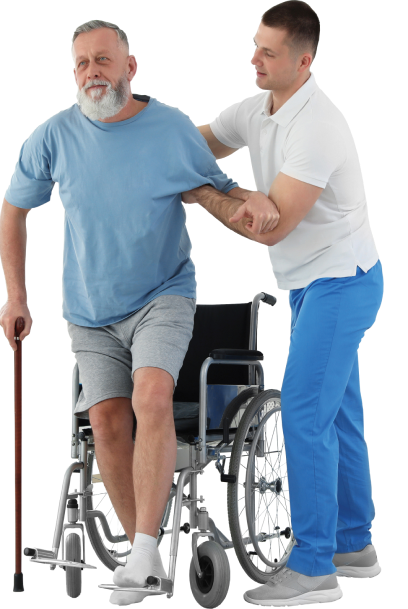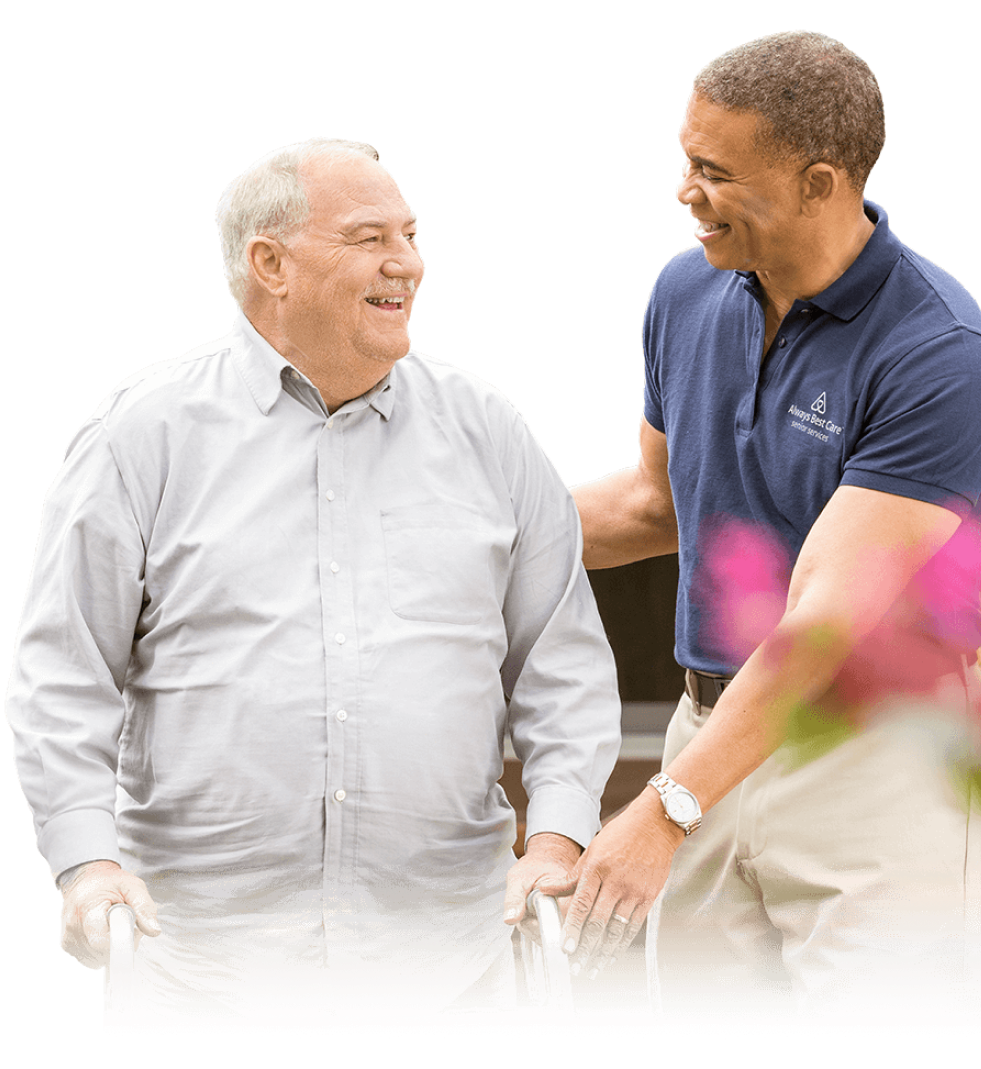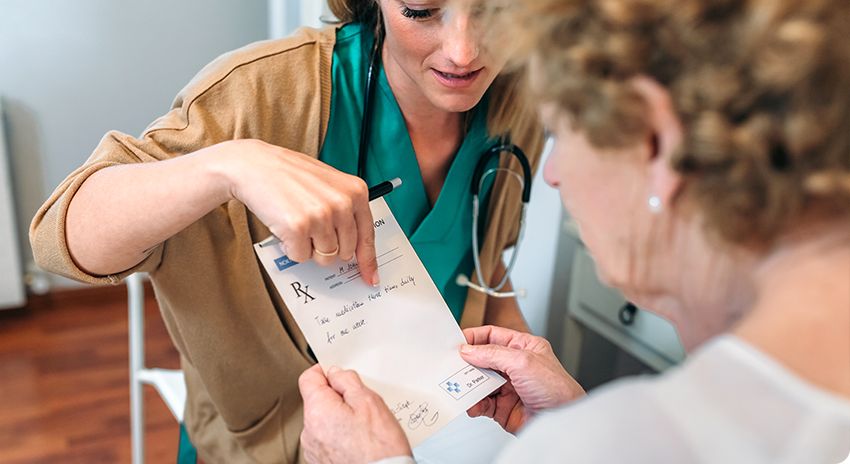This website uses cookies so that we can provide you with the best user experience possible. Cookie information is stored in your browser and performs functions such as recognising you when you return to our website and helping our team to understand which sections of the website you find most interesting and useful.
Home Care In Auburn, CA

They say that your golden years are the best years of your life. For most older Americans, that's how it should be - a time to relax, reflect, and live life in a familiar place. After all, senior citizens in the U.S. have worked tirelessly to build a better economy, serve their communities, and raise families.
However, as seniors grow older, completing daily tasks like showering and enjoying activities such as visiting the historic Auburn Firehouse gets harder without someone by their side. Unfortunately, many older Americans aren't able to rely on their adult children for help. The reality in today's world is that family members do not have the skills or time to dedicate to caring for their parents. That's where Always Best Care Senior Services comes in.
Our in-home care services are for people who prefer to stay at home as they grow older but need ongoing care that family or friends cannot provide. More and more older adults prefer to live far away from long-term, institutionalized facilities and closer to the place where they feel most comfortable - their home. Home care in Auburn, CA is a safe, effective way to give your loved ones the care they need when they need it the most.

 Home Care Services
Home Care Services
- Home Care in Auburn, CA
- The Always Best Care Difference
- Types of In-home Care in Auburn, CA
- Benefits of Home Care in Auburn, CA
- Aging in Place: The Preferred Choice for Most Seniors
- Affordable Care Plans
- Compassionate Care. Trusted Caregivers
- Assisted Living Referral Services
- Taking the First Step with Always Best Care
 Service Areas
Service Areas
The Always Best Care Difference
Since 1996, Always Best Care has provided non-medical in-home care for seniors to help them maintain a healthy lifestyle as they get older. We are proud to have helped more than 25,000 seniors maintain higher levels of dignity and respect. We focus on providing seniors with the highest level of in-home care available so that they may live happily and independently.
Unlike some senior care companies, we genuinely want to be included in our clients' lives. We believe that personalized care is always the better option over a "one size fits all" approach. To make sure our senior clients receive the best care possible, we pair them with compassionate caregivers who understand their unique needs. That way, they may provide care accordingly without compromising their wellbeing.
The Always Best Care difference lies in life's little moments - where compassionate care and trustworthy experience come together to help seniors live a fruitful, healthy life. Whether you are an aging adult that can't quite keep up with life's daily tasks or the child of a senior who needs regular in-home services, Always Best Care is here to help.
“We had an amazing experience with Always Best during a very challenging time. Their coordination”
“Great care for my husband, David Reynolds. We are happy with our caregiver Shristi”
“Eshneet with Always Best Care is an honest and trustworthy person. I would highly recommend”
“Eshneet is an extremely down to earth and caring individual! If you or your family”
“This is the best senior care services company in the Sacramento area, and it’s not”
“I highly recommend Always Best Care! Dan, the owner, is such a caring and”
“I’d highly recommend ABC Senior Services when looking for long term care for a loved”
“It’s been wonderful working with Carrie from Always Best Care. She took time to guide”
“Amanda Wild ' she is Great with Me, Helps with ever I Need, Helps my”
“This company is amazing. I would recommend it to everybody. If you have a”
“Your caregivers were superb. It’s not easy to support those at end of life and”
“Carrie was phenomenal in assisting us with finding a place suitable for my mothers needs,”
“We had the pleasure of working with Susan. We had an urgent matter that we”
“I worked with Carrie with Always Best Care to place my dad into a memory”
“I worked with Carrie with Always Best Care to place my dad into a memory”
“Louiscea is always dependable and on time. Goes out of her way to get”
“Lynette Devan has been our caretaker since early January 2024. She is diligent, self-motivated, and”
“I have been with Always Best Care for about four years now, and I’ve always”
“Started working for the company a few months ago, it has been one of the”
“The caregivers are wonderful, particularly Shristi. She is such a gem and she has become”
“Victoria Bourke is a wonderful caregiver. She’s very supportive of my mom and me.”
“I was frantic and knew very little about how to care for my father at”
“Tori Burke has been great. She's doing a awesome job helping my mother”
“Grateful for my health aide Shannon. She’s a great listener, always ready to hear my”
“My husband has been with Always Best Care since the end of last year recommended”
“We had an amazing experience with Always Best during a very challenging time. Their coordination of services and quality of caregivers are exceptional. We were especially appreciative of the caregiving support of Brianna. She was not only intuitive, but also very compassionate and professional. We highly recommend them.”
“Great care for my husband, David Reynolds. We are happy with our caregiver Shristi S”
“Eshneet with Always Best Care is an honest and trustworthy person. I would highly recommend Always Best Care and Eshneet for helping your loved ones find the right senior care.”
“Eshneet is an extremely down to earth and caring individual! If you or your family are in need of some senior assistances, make sure she is your first call!”
“This is the best senior care services company in the Sacramento area, and it’s not even close. They hold themselves and their employees to a high standard and ethics that is rare in this industry. Shoutout to Eshneet, she does fantastic work hustling all around town!”
“I highly recommend Always Best Care! Dan, the owner, is such a caring and genuine human and goes above and beyond to serve the seniors in our community. I've also gotten to know Eshneet and she is wonderful to work with. There's no company I trust more to provide great quality and affordable in-home services to people I love.”
“I’d highly recommend ABC Senior Services when looking for long term care for a loved one. Carrie was caring, personable and knowledgeable. She took the time to get to know us and our needs to find a good fit for my mom. She was always available to assist us and made a daunting task manageable. God bless ABC Services and Carrie for the vital service they provided in our time of need.”
“It’s been wonderful working with Carrie from Always Best Care. She took time to guide my wife and me through the process of finding an affordable solution for my elderly father and placing him in a loving care home in the area. She also guided us through the VA process. Thank you Carrie and team for the wonderful support during a challenging situation.”
“Amanda Wild ' she is Great with Me, Helps with ever I Need, Helps my companion around the house, she is a very ,kind & giving person, your lucky to have her, she should move up in your company very Quickly, thank you for her Services, Chris Keane.”
“This company is amazing. I would recommend it to everybody. If you have a loved one your helper is available, dependable, loving. You will feel so comfortable knowing your loved one is in great hands.”
“Your caregivers were superb. It’s not easy to support those at end of life and the caregivers we had met us exactly where we were every day, blended in with our family, found ways to help us by identifying exactly what we needed and just taking care of it as opposed to waiting for us to delegate tasks. This was a huge blessing to us in our grief during a time of great difficulty. My dad had terminal agitation which took time to titrate medications to get comfortable. The caregivers moved with dad with grace and expertise to help him and us until we were able to get him settled and comfortable. This takes skill….and it showed in every way. From their soft tone of voice, redirection and agreeable attitude, flowing with his confusion and helping him feel safe until he settled. Not to mention a warm hand on our shoulder when we needed it, a snack or a drink when they recognized that we may have forgotten to take of ourselves. Zac, Tristin, Britni and Gabby were all a gift to our family as well as the organization they work for. Often times, caregivers are the lowest paid employees in their organizations. Please know, these outstanding individuals at the bedside supporting families are the face and heart of the work you do. Take good care of these amazing humans. Much love to ALL you for what you do in your community and keep up the good work! ❤️”
“Carrie was phenomenal in assisting us with finding a place suitable for my mothers needs, I am thankful so much. I would recommend Carrie to anyone who could benefit from her help.”
“We had the pleasure of working with Susan. We had an urgent matter that we really didn't know how to handle or how long we needed assistance, but she was so accommodating and incredibly helpful every step of the way. She was very kind, knowledgeable, caring, and responded quickly any time we contacted her. We truly felt like she cared about us and helping us in this time of need. We are so thankful for her!”
“I worked with Carrie with Always Best Care to place my dad into a memory care facility and I can honestly say I don’t think could have made it through such a difficult transition without her help. She helped me get through one of the most challenging times of my life. The compassion and care she showed me and my father was incredible. Going through the process of finding a place for your parent with a memory issue is so difficult and I highly recommend working with a professional. I recommend Carrie and Always Best Care to everyone I hear is trying to navigate that process. Thank you for everything you have done for me and my father.”
“I worked with Carrie with Always Best Care to place my dad into a memory care facility and I can honestly say I don’t think could have made it through such a difficult transition without her help. She helped me get through one of the most challenging times of my life. The compassion and care she showed me and my father was incredible. Going through the process of finding a place for your parent with a memory issue is so difficult and I highly recommend working with a professional. I recommend Carrie and Always Best Care to everyone I hear is trying to navigate that process. Thank you for everything you have done for me and my father.”
“Louiscea is always dependable and on time. Goes out of her way to get cleaning problems done.”
“Lynette Devan has been our caretaker since early January 2024. She is diligent, self-motivated, and VERY competent. She loves to talk and entertain my Dad - 96 - listening patiently to his sometimes disjointed stories and fascinating him with her own! She loves to be active, always anticipating our needs with vacuuming, laundry, food prep, etc. WITHOUT being asked! We greatly value her work ethic and loving care. Always Best responded to our request with this caretaker after a bad experience with another agency's caretaker who was content to play with his phone whenever he could and only doing tasks when asked/directed to do so - and then sullenly. Jim & Ray Moitoza”
“I have been with Always Best Care for about four years now, and I’ve always been impressed with the quality and professionalism of the caregivers they have sent me. As a disabled veteran, I appreciate a company that I can count on for short term and long-term care. My current caregiver, Louiscea D. is exceptional, trustworthy and always punctual. Always Best Care gets my five stars.”
“Started working for the company a few months ago, it has been one of the best companies hand down that I have worked for since moving to the area. They honestly care about you as a human they work with your schedule and try very hard to accommodate you. I can’t say enough about Dixie she is so sweet and caring she is the meaning of test others how you would want to be. lol as long as she is there I will be as well????”
“The caregivers are wonderful, particularly Shristi. She is such a gem and she has become an important part of my life for me and my family. She is caring and considerate as well as efficient. The billing department however needs improvement.”
“Victoria Bourke is a wonderful caregiver. She’s very supportive of my mom and me. She’s flexible in her schedule and always has a smile!”
“I was frantic and knew very little about how to care for my father at his home. Fortunately, I found Always Best Care in Rocklin, CA. Carrie spoke to me about their services on the phone and I started crying. For the first time, I felt there was a path to follow to provide the best care for my dad. Then, I was apprehensive about bringing strangers into my dad's house. Well, Shonda came for the weekend shift and I knew instantly she was a great fit. She was kind and gentle with Dad, but firm when needed. She took care of his feeding and medication needs. I loved her. Then along came Gabrielle, Gabby for short. She was on the Monday-Friday shift. At first I thought she was too young for this responsibility. But, wow, she was awesome. She took care of Dad and his feeding, medicine, movement needs. And, without me having to direct her, she cleaned dishes, took out the garbage, vacuumed, while he was sleeping. They were better care givers than I could be. What a blessing these ladies were at a time when my father and I were the most vulnerable. Thank you Always Best Care for being there.”
“Tori Burke has been great. She's doing a awesome job helping my mother with all her needs. Tori has a very special personality that makes my mom feel very comfortable. Tori has made this past year so much easier. Thank you for sending Tori to us. Tori is a definite 5 star. Secret word OCEAN”
“Grateful for my health aide Shannon. She’s a great listener, always ready to hear my stories, wants and needs. Thanks for sending me off to dialysis with a smile and waiting for transport to arrive.”
“My husband has been with Always Best Care since the end of last year recommended by the VA. The office staff is friendly, they answer phone messages quickly and work with our schedule to assign a health aide. We love our current health aide Shannon Rauson, as does our dog Luna. She preps meals, does light housecleaning around my husbands hospital bed, and washes my husband to get him ready for his dialysis day. Thank you Always Best Care.”
What is Non-Medical Senior Care in Auburn, CA?

Home is where the heart is. While that saying can sound a tad cliche, it is especially true for many seniors living in America. When given a choice, older adults most often prefer to grow older at home. An AARP study found that three out of four adults over the age of 50 want to stay in their homes and communities as they age.

When you begin to think about why, it makes sense. Home offers a sense of security, comfort, and familiarity.

The truth is, as we age, we begin to rely on others for help. When a family is too busy or lives too far away to fulfill this role, in-home senior care is often the best solution. Home care services allow seniors to enjoy personal independence while also receiving trustworthy assistance from a trained caregiver.

At Always Best Care, we offer a comprehensive range of home care services to help seniors stay healthy while they get the help they need to remain independent. As your senior loved one gets older, giving them the gift of senior care is one of the best ways to show your love, even if you live far away.

Types of Elderly Care in Auburn, CA
To give our senior clients the best care possible, we offer a full spectrum of in-home care services:

Personal Care Services
If your senior loved one has specific care needs, our personal care services are a great choice to consider. Personal care includes the standard caregiving duties associated with companion care and includes help with tasks such as dressing and grooming. Personal care can also help individuals with chronic conditions like diabetes.
Common personal care services include assistance with:
- Eating
- Mobility Issues
- Incontinence
- Bathing
- Dressing
- Grooming


Home Helper Services
Sometimes, seniors need helpful reminders to maintain a high quality of life at home. If you or your senior has trouble with everyday tasks like cooking, our home helper services will be very beneficial.
Common home helper care services include assistance with:
- Medication Reminders
- Meal Preparation
- Pet Care
- Prescription Refills
- Morning Wake-Up
- Walking
- Reading


Companionship Services
Using this kind of care is a fantastic way to make life easier for you or your senior loved one. At Always Best Care, our talented caregivers often fill the role of a companion for seniors. That way, older adults can enjoy their favorite local activities, such as visiting Ashford Park with friends while also receiving the care they need daily or weekly.
Common companionship services include:
- Grocery Shopping
- Transportation to Appointments
- Nutritional Assistance
- Conversation
- Planning Outings
- Completing Errands
- Transportation to Community
- Events and Social Outings


Respite Care Services
According to AARP, more than 53 million adults living in the U.S. provide care to someone over 50 years old. Unfortunately, these caregivers experience stress, exhaustion, and even depression. Our respite care services help family caregivers address urgent obligations, spend time with their children, and enjoy nearby activities. Perhaps more importantly, respite care gives family members time to recharge and regroup. Taking personal time to de-stress reduces the risk of caregiver burnout. So, if you've always wanted to eat at the local Restaurant Josephine or visit California Historical Marker, don't feel bad. Doing so is great for both you and your loved one.
At the end of the day, our goal is to become a valuable part of your senior's daily routine. That way, we may help give them the highest quality of life possible. We know that staying at home is important for your loved one, and we are here to help make sure that is possible.
If you have been on the fence about non-medical home care, there has never been a better time than now to give your senior the care, assistance, and companionship they deserve.

Benefits of Home Care in Auburn, CA
Always Best Care in-home services are for older adults who prefer to stay at home but need ongoing care that friends and family cannot provide. In-home care is a safe, effective way for seniors to age gracefully in a familiar place and live independent, non-institutionalized lives. The benefits of non-medical home care are numerous. Here are just a few reasons to consider senior care services from Always Best Care:
Always Best Care offers a full array of care options for patients at all levels of health. With our trusted elderly care services, your loved one will receive the level of care necessary for them to enjoy the highest possible quality of life.
Request More Information
Aging in Place: The Preferred Choice for Most Seniors
While it's true that some seniors have complicated medical needs that prevent them from staying at home, aging in place is often the best arrangement for seniors and their families. With a trusted caregiver, seniors have the opportunity to live with a sense of dignity and do so as they see fit - something that is unavailable to many older people today.
In-home care makes it possible for millions of seniors to age in place every year. Rather than moving to a strange nursing home, seniors have the chance to stay at home where they feel the happiest and most comfortable.
Here are just a few of the reasons why older men and women prefer to age at home:
How much does a senior's home truly mean to them?
A study published by the American Society on Aging found that more than half of seniors say their home's emotional value means more than how much their home is worth in monetary value. It stands to reason, then, that a senior's home is where they want to grow old.
With the help of elderly care in Auburn, CA, seniors don't have to age in a sterilized care facility. Instead, they can age gracefully in the place they want to be most: their home. In contrast, seniors who move to a long-term care facility must adapt to new environments, new people, and new systems that the facility implements. At this stage in life, this kind of drastic change can be more harmful than helpful.
Institutional care facilities like nursing homes often put large groups of people together to live in one location. On any given day, dozens of staff members and caregivers run in and out of these facilities. Being around so many new people in a relatively small living environment can be dangerous for a seniors' health and wellbeing. When you consider that thousands of seniors passed away in nursing homes during the COVID-19 pandemic, opting for in-home care is often a safer, healthier choice for seniors.
Aging in place has been shown to improve seniors' quality of life, which helps boost physical health and also helps insulate them from viral and bacterial risks found in elderly living facilities.
For many seniors, the ability to live independently with assistance from a caregiver is a priceless option. With in-home care, seniors experience a higher level of independence and freedom - much more so than in other settings like a nursing home. When a senior has the chance to age in place, they get to live life on their own terms, inside the house that they helped make into a home. More independence means more control over their personal lives, too, which leads to increased levels of fulfillment, happiness, and personal gratification. Over time, these positive feelings can manifest into a healthier, longer life.
More independence, a healthier life, and increased comfort are only a few benefits of aging in place. You have to take into consideration the role of cost and convenience. Simply put, it's usually easier and more affordable to help seniors age in place than it is to move them into an institutional care facility. According to the US Department of Housing and Urban Development, seniors who age in the comfort of their homes can save thousands of dollars per month.
In-home care services from Always Best Care, for instance, are often less expensive than long-term solutions, which can cost upwards of six figures per year. To make matters worse, many residential care facilities are reluctant to accept long-term care insurance and other types of payment assistance.
With Always Best Care's home care services, seniors and their families have a greater level of control over their care plans. In-home care gives seniors the chance to form a bond with a trusted caregiver and also receive unmatched care that is catered to their needs. In long-term care facilities, seniors and their loved ones have much less control over their care plan and have less of a say in who provides their care.

Affordable Care
In-home care is a valuable resource that empowers seniors to age in place on their own terms. However, a big concern for many families and their loved ones is how much in-home care costs. If you're worried that in-home care is too expensive, you may be pleasantly surprised to learn that it is one of the most affordable senior care arrangements available.
Typically, hiring an Always Best Care in-home caregiver for a few hours a week is more affordable than sending your loved one to a long-term care facility. This is true even for seniors with more complex care needs.
At Always Best Care, we will work closely with you and your family to develop a Care Plan that not only meets your care needs, but your budget requirements, too. Once we discover the level of care that you or your senior need, we develop an in-home care plan that you can afford.
In addition to our flexible care options, families should also consider the following resources to help offset potential home care costs:

Compassionate Care. Trusted Caregivers.
When you or your senior loved one needs assistance managing daily tasks at home, finding a qualified caregiver can be challenging. It takes a special kind of person to provide reliable care for your senior loved one. However, a caregiver's role involves more than meal preparation and medication reminders. Many seniors rely on their caregivers for companionship, too.
Our companion care services give seniors the chance to socialize in a safe environment and engage in activities at home. These important efforts boost morale and provide much-needed relief from repetitive daily routines. A one-on-one, engaging conversation can sharpen seniors' minds and give them something in which to be excited.
At Always Best Care, we only hire care providers that we would trust to care for our own loved ones. Our senior caregivers in Auburn, CA understand how important it is to listen and communicate with their seniors. A seemingly small interaction, like a short hug goodbye, can make a major difference in a senior's day. Instead of battling against feelings of isolation, seniors begin to look forward to seeing their caregiver each week.
Understanding the nuances of senior care is just one of the reasons why our care providers are so great at their job.
Unlike some senior care companies, our caregivers must undergo extensive training before they work for Always Best Care. In addition, our caregivers receive ongoing training throughout the year. This training ensures that their standard of care matches up to the high standards we've come to expect. During this training, they will brush up on their communication skills, safety awareness, and symptom spotting. That way, your loved one receives the highest level of non-medical home care from day one.
Assisted Living Referral Services
While it's true that many seniors prefer to age at home, sometimes in-home care isn't the best fit. For those seniors and their families, choosing an assisted living facility makes more sense. Unfortunately, finding the optimal care facility is easier said than done in today's day and age. That's when Always Best Care's assisted living referral services begin to make a lot of sense.
Assisted living is a form of housing intended for seniors who require varying degrees of medical and personal attention. Accommodations may include single rooms, apartments, or shared living arrangements. Assisted living communities are typically designed to resemble a home-like environment and are physically constructed to encourage the independence of residents.

At assisted living communities, seniors receive help with daily activities such as bathing, dressing, and eating. They may also benefit from coordination of services with outside healthcare providers, and monitoring of resident activities to ensure their health, safety, and well-being. Caregivers who work at assisted living communities can also provide medication administration and personal care services for older adults.
Other services offered within assisted living communities can include some or all of the following:
- Housekeeping
- Laundry
- Recreational Activities
- Social Outings
- Emergency Medical Response
- Medication Monitoring
- Family Visitation
- Personal Care

At Always Best Care, our representatives can match your senior's emotional, physical, and financial needs with viable assisted living communities nearby. Results are based on comparative data, so you can select the best choice for you or your loved one.
Always Best Care works closely with local senior living communities to gain valuable knowledge that we then use to help seniors and their loved ones make informed decisions. This information can include basic care and rent, resident availability, and services provided. Because Always Best Care is compensated by these communities, we provide senior living referral services at no extra cost to you.
Some of the most popular assisted living communities to consider in our area include the following:
- Auburn Assisted Living
- Morningside of Auburn
- Summer Village Azalea Place
- Summer Village Camellia Place
- Arbor Lakes
- Holiday Monarch Estates

For many seniors, moving into a senior living community revolves around how and when they want to make a transition to more involved care. Some seniors are more proactive about transitioning to independent living. Others choose to remain home until their care needs or other requirements are satisfied. Remember - our staff is here to help. Contact our office today to learn more about assisted living communities and how we can find a facility that exceeds your expectations.

Taking the First Step with Always Best Care
The first step in getting quality in-home care starts with a personal consultation with an experienced Always Best Care Care Coordinator. This initial consultation is crucial for our team to learn more about you or your elderly loved one to discover the level of care required. Topics of this consultation typically include:
A discussion of your needs and how our trained caregivers can offer assistance in the most effective way

A draft of your care plan, which includes highly detailed notes and a framework for the care that you or your senior will receive

Discuss payment options and help coordinate billing with your insurance provider

Our caregivers are trained to spot changes that clients exhibit, like mental and physical decline. As your trusted senior care company, we will constantly assess and update your Care Plan to meet any new emotional, intellectual, physical, and emotional needs.
If you have never considered in-home care before, we understand that you and your family may have concerns about your Care Plan and its Care Coordinator. To help give you peace of mind, know that every team member and caregiver must undergo comprehensive training before being assigned to a Care Plan.
At the end of the day, we only hire the best of the best at Always Best Care. Whether you need home care in Auburn, CA 24-hours a day or only need a respite for a couple of hours, we are here to serve you.
When you're ready, we encourage you to contact your local Always Best Care representative to set up a Care Consultation. Our Care Coordinators would be happy to meet with you in person to get to know you better, discuss your needs, and help put together a personalized Care Plan specific to your needs.

Latest News in Auburn, CA
Auburn apartment complex evacuated after fire rips through building
Cecilio Padillahttps://www.cbsnews.com/sacramento/news/auburn-high-st-apartment-complex-fire/
Firefighters evacuated an entire apartment complex in Auburn after flames tore through a building Thursday morning.Auburn Fire officials say first responders were called to the scene along High Street a little before 11 a.m. and found flames coming from the second floor of a two-story four-plex.Two top units of the building suffered major damage, firefighters say, while two of the units below also had water and smoke damage.Police say the entire complex had to be evacuated. Some surrounding buildings were also evacuated,...
Firefighters evacuated an entire apartment complex in Auburn after flames tore through a building Thursday morning.
Auburn Fire officials say first responders were called to the scene along High Street a little before 11 a.m. and found flames coming from the second floor of a two-story four-plex.
Two top units of the building suffered major damage, firefighters say, while two of the units below also had water and smoke damage.
Police say the entire complex had to be evacuated. Some surrounding buildings were also evacuated, police say. Everyone got out of the building, police say, but one person had their arm burned.
Firefighters say several residents were displaced by the fire, but no exact number was given. The Red Cross has been called in to help.
Officers shut down High Street during the emergency response.
Exactly what started the fire is now under investigation.
Cecilio Padilla is a digital producer for CBS Sacramento and a Sacramento-area native who has been covering Northern California for more than a decade.
Auburn City Council votes to save annual 4th of July Fireworks Show
Author Staffhttps://www.abc10.com/article/news/local/auburn-grass-valley/auburn-city-council-4th-of-july-fireworks-show/103-3ecaaf2b-3119-4616-aaa5-52cc4fefa97b
AUBURN, Calif. — Auburn’s Fourth of July fireworks show is officially back on after the Auburn City Council voted 4-1 to keep the event alive this year. The decision comes after the Auburn Chamber of Commerce, which has traditionally organized the event, stepped away due to staffing challenges.The City Council stepped in to sponsor and manage the annual firewo...
AUBURN, Calif. — Auburn’s Fourth of July fireworks show is officially back on after the Auburn City Council voted 4-1 to keep the event alive this year. The decision comes after the Auburn Chamber of Commerce, which has traditionally organized the event, stepped away due to staffing challenges.
The City Council stepped in to sponsor and manage the annual fireworks display, which will take place at the Gold Country Fairgrounds. Although the Chamber of Commerce will continue to host the town's annual parade and downtown activities, the fireworks show faced uncertainty until local business owners and the Downtown Business Association took action.
The city says efforts to save the show had been complicated by insurance and contractual issues, threatening the event’s future. Despite these obstacles, some City Councilmembers were determined to preserve the beloved tradition, however others raised concerns about potential economic risks.
Councilmember Rachel Radell-Harris emphasized the cultural significance of the fireworks show, recalling its importance for the community.
"This is one of those events that people think of when they think of Auburn. I remember going to it when I was a small child. It is an important part of the culture of our community," she said.
Mayor Sandra Amara also expressed her personal desire to see the event continue but acknowledged the city's financial constraints.
"From a personal perspective, I would love to have the fireworks. We have a budget crisis, and this has come on us very quickly," she said.
The fireworks show, which will cost around $21,000, not including staff time, had been at risk due to insurance issues and fundraising challenges. The city says its risk pool has flagged potential insurance risks, but the Council’s decision allows the event to proceed with the city’s financial backing.
The city has already pledged $9,000 toward the cost of the fireworks, but further support may be needed if fundraising falls short.
WATCH ALSO:
Disclaimer:


 916-266-6453
916-266-6453





